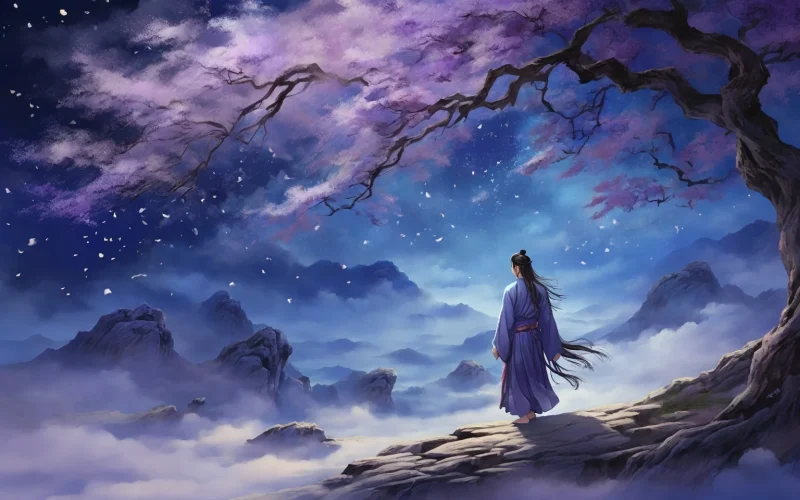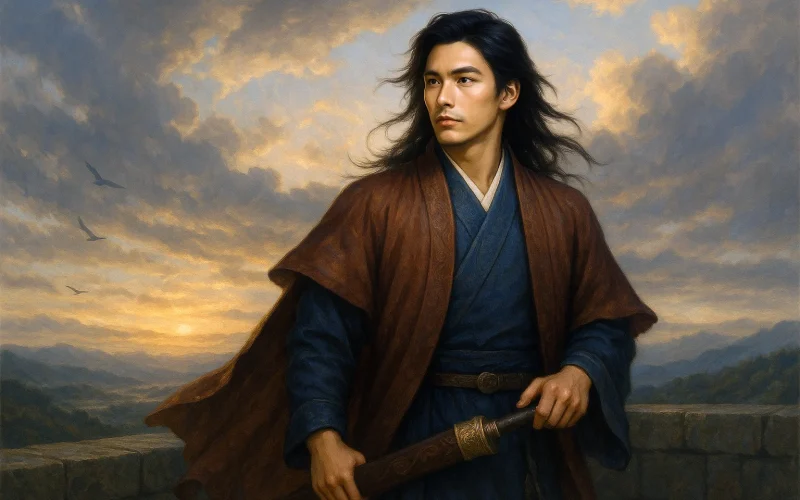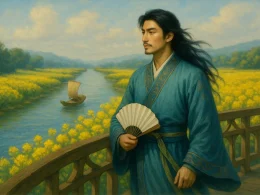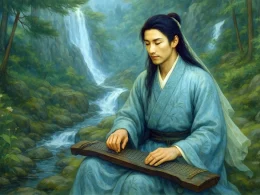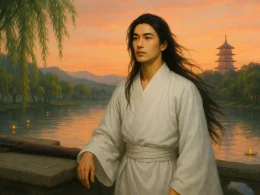Ma Dai (马戴) (c. 803–876), courtesy name Yuchen (虞臣), was a native of Quyang (present-day southwest of Donghai, Jiangsu) and a distinguished poet of the mid-Tang period. Though not as renowned as first-tier poets like Wang Wei (王维) or Li Bai (李白), Ma Dai (马戴) gradually established his literary reputation through his profound verses and distinctive style. His poetry is characterized by its refreshing clarity and concise elegance, with particular mastery of five-character regulated verse (五律), embodying a unique aesthetic within Tang literary traditions.
Representative Works
Life Overview
Gifted from youth, Ma Dai displayed exceptional literary talent early on. In 844 (the fourth year of the Huichang era), he passed the imperial examinations as a jinshi (进士) and entered officialdom. He served as a secretary in the Taiyuan military governorship but, due to his outspoken criticism of powerful ministers, was demoted to the post of Longyang county lieutenant. This punishment marked a pivotal chapter in his life—though exiled, he never abandoned his ideals or literary pursuits. Later pardoned, he returned to the capital and eventually rose to the position of Grand Academician (太学博士).
Ma Dai maintained close literary friendships with poets like Jia Dao and Yao He, with whom he exchanged and refined poetic techniques, particularly in five-character regulated verse. Their mutual influence fostered a deep creative camaraderie. His style, emphasizing naturalness and clarity, never achieved Wang Wei’s widespread acclaim, yet his sincere and unadorned artistic vision earned him a respected place in literary circles.
Stylistic Features
Ma Dai’s poetry is marked by simplicity, naturalness, and economical language, prioritizing genuine emotional expression. A master of five-character regulated verse, his works brim with pastoral charm, especially in depictions of landscapes, rural life, and natural scenes, reflecting his deep communion with nature. While grounded in realism, his verse often carries philosophical undertones, particularly meditations on officialdom and life’s vicissitudes. His emotional range spans a love for nature to contemplations on fate and society.
The distinctive appeal of his poetry lies in its unpretentious style and profound sentiment. With spare language, he crafts deceptively simple yet resonant imagery, evoking a sense of tranquility and freshness. Eschewing ornate rhetoric, Ma Dai’s restrained brushwork reveals both philosophical depth and the beauty of the natural world.
Literary Achievements
Ma Dai’s legacy rests primarily on his poetry. Though his oeuvre is modest in volume, each piece embodies his reflections on life and nature. His technical mastery is evident in the meticulous handling of tonal patterns (平仄) in his five-character regulated verse.
His exchanges with Jia Dao and Yao He not only honed his craft but also deepened his artistic aspirations. Ma Dai’s style—concise yet potent—resonates with readers through its unvarnished authenticity. Lacking elaborate embellishment, his works exude an understated beauty that lingers.
While overshadowed in his era by luminaries like Wang Wei and Bai Juyi, Ma Dai’s fresh, philosophically rich verse secured his niche in literary history. His depictions of idyllic landscapes, in particular, distill a simplicity that verges on the profound, contributing some of the finest examples to Tang pastoral poetry.
Representative Works
Ma Dai’s legacy is anchored in his five-character regulated verse. Notable works include:
- Miscellaneous Poems in the Mountains (《山中杂诗》)
- Mooring at Niuzhu at Night, Reflecting on the Past (《夜泊牛渚怀古》)
- Farewell (《送别》)
- Two Parting Poems (《赠别二首》)
These poems typically reflect his love for nature and philosophical musings on life. Ma Dai’s economical language and heartfelt emotion conjure far-reaching vistas with minimal strokes. Though his blunt integrity brought career turbulence, his unwavering principles and intellectual courage cemented his place as an indelible figure in Tang literature. Less universally recognized than his peers, his poetry nonetheless carved an enduring space in the vast currents of Tang poetic history.











